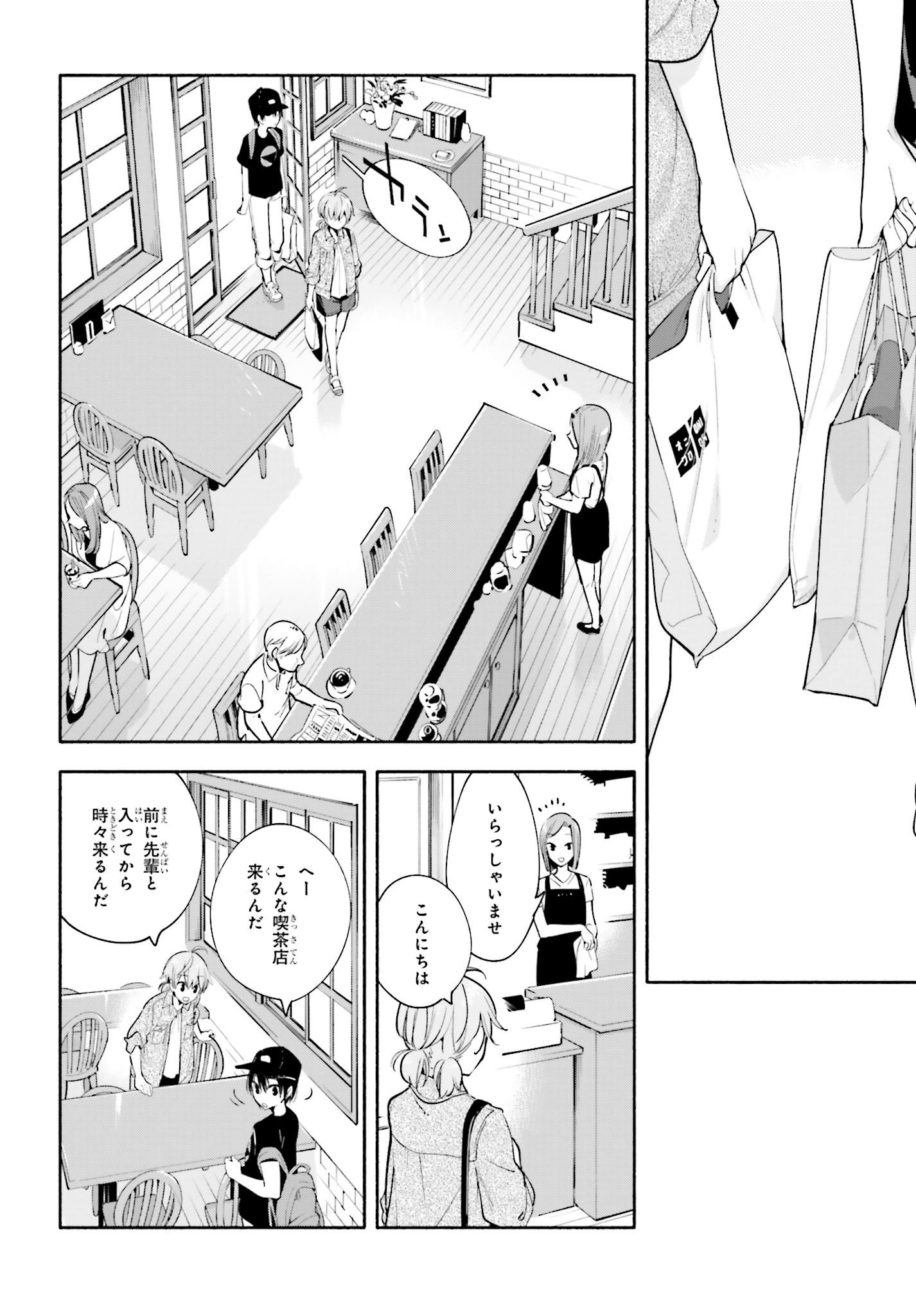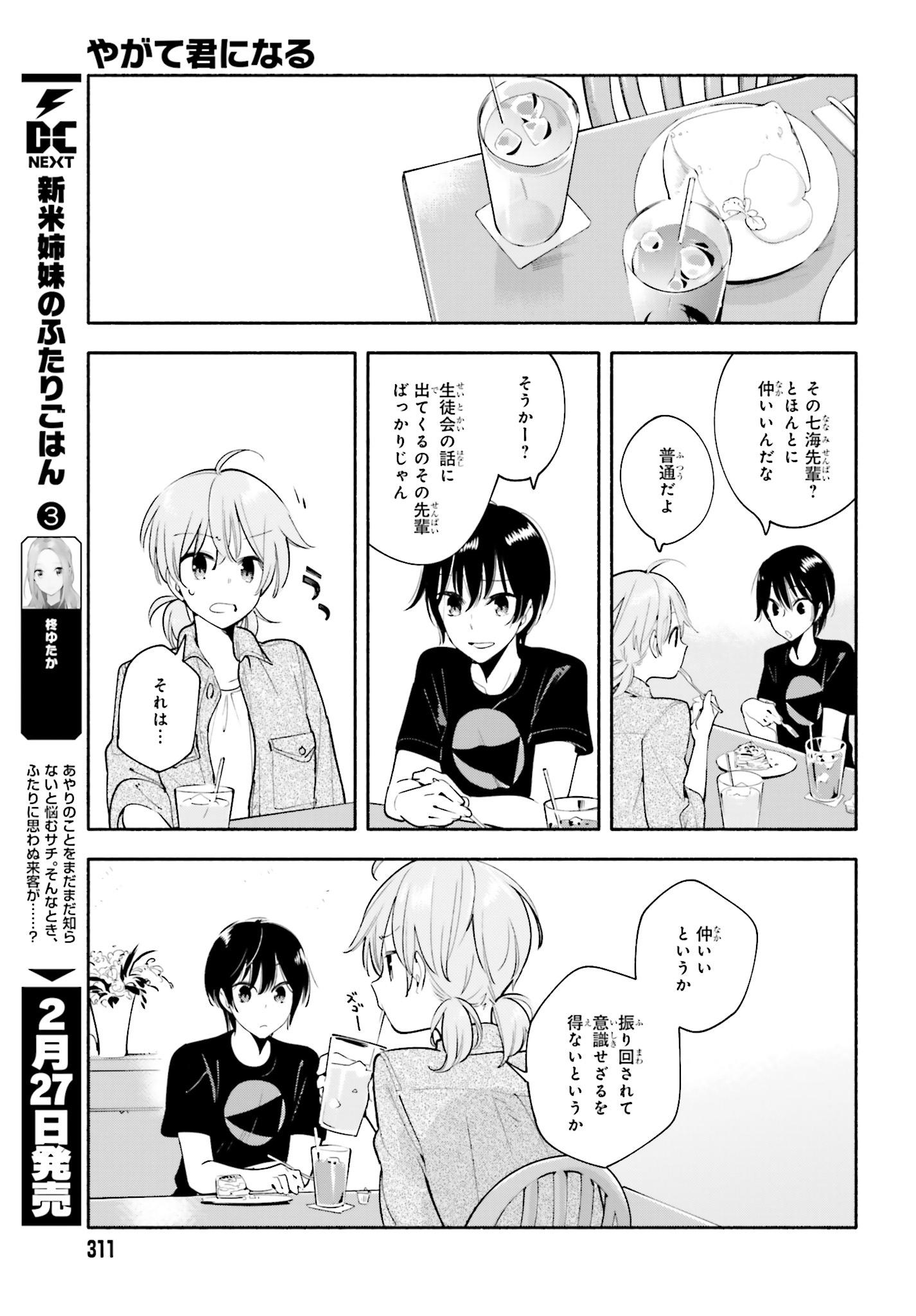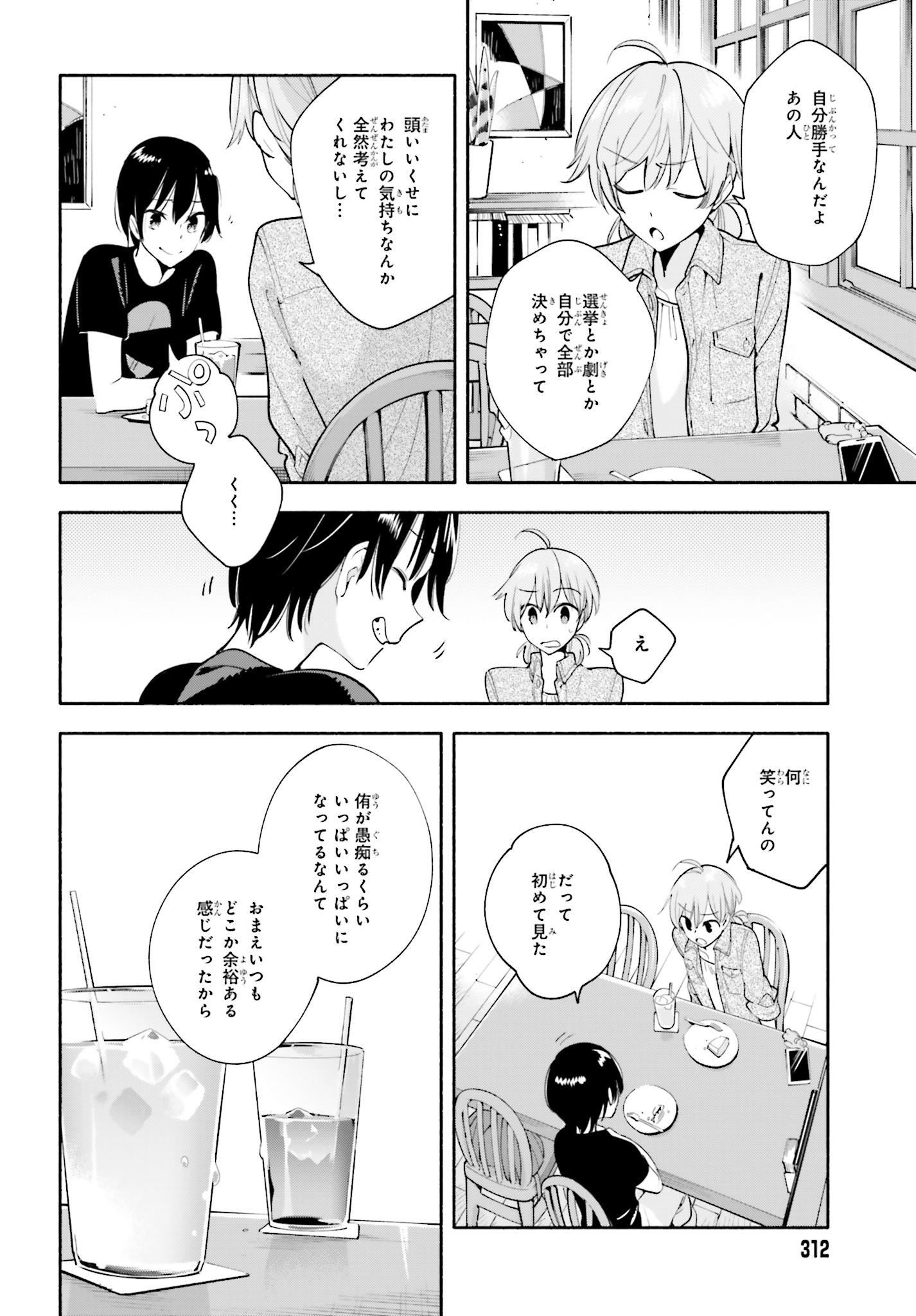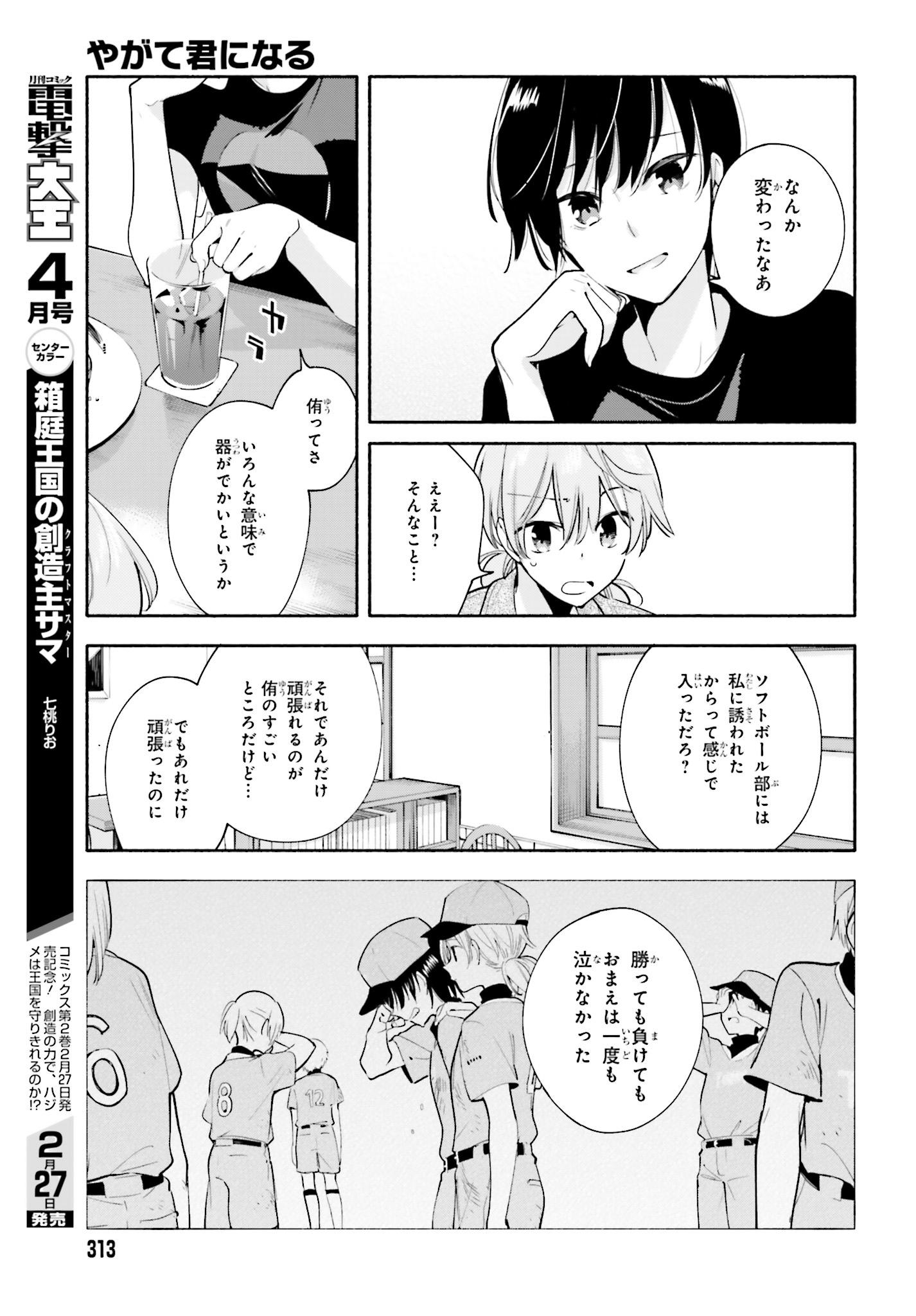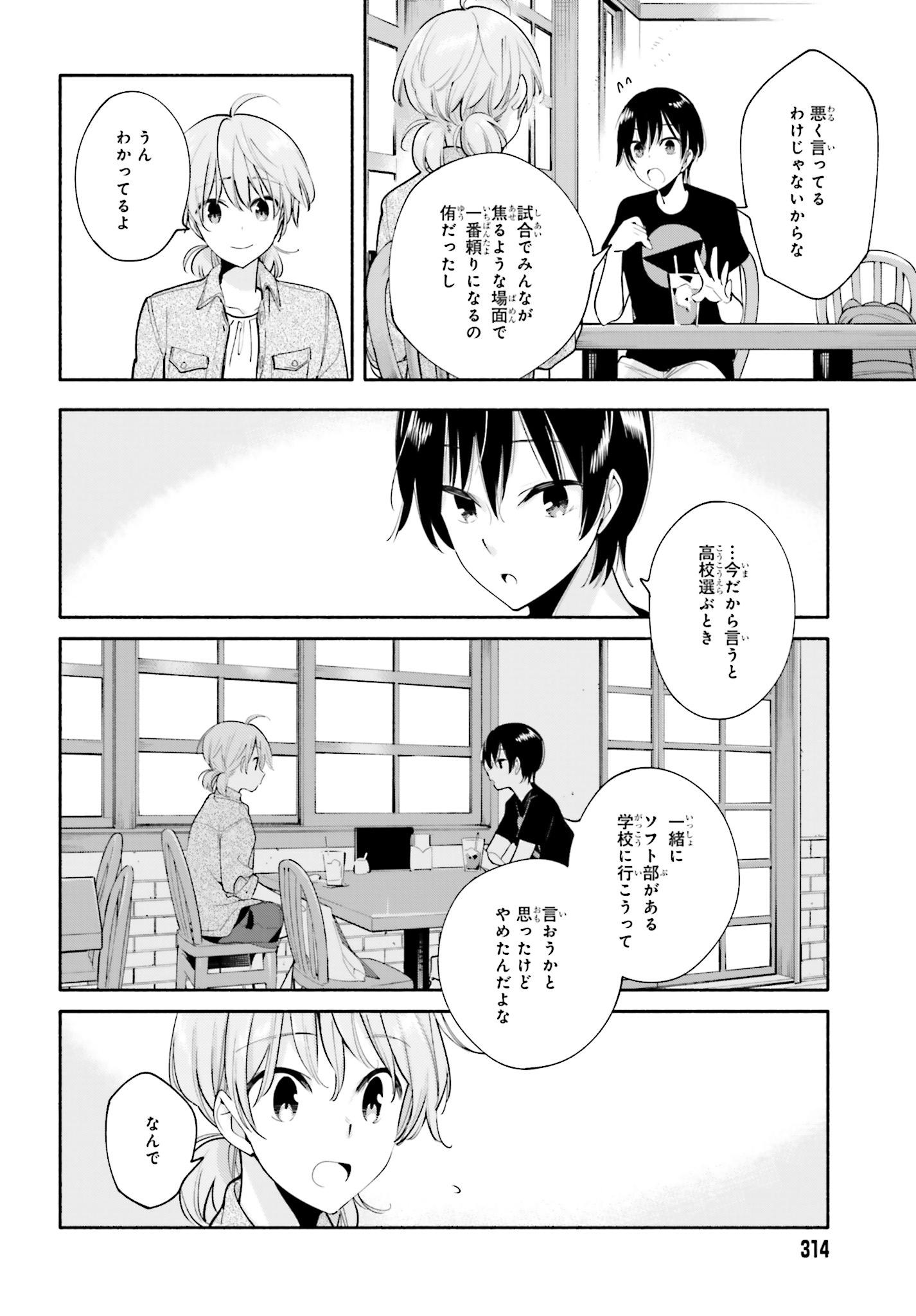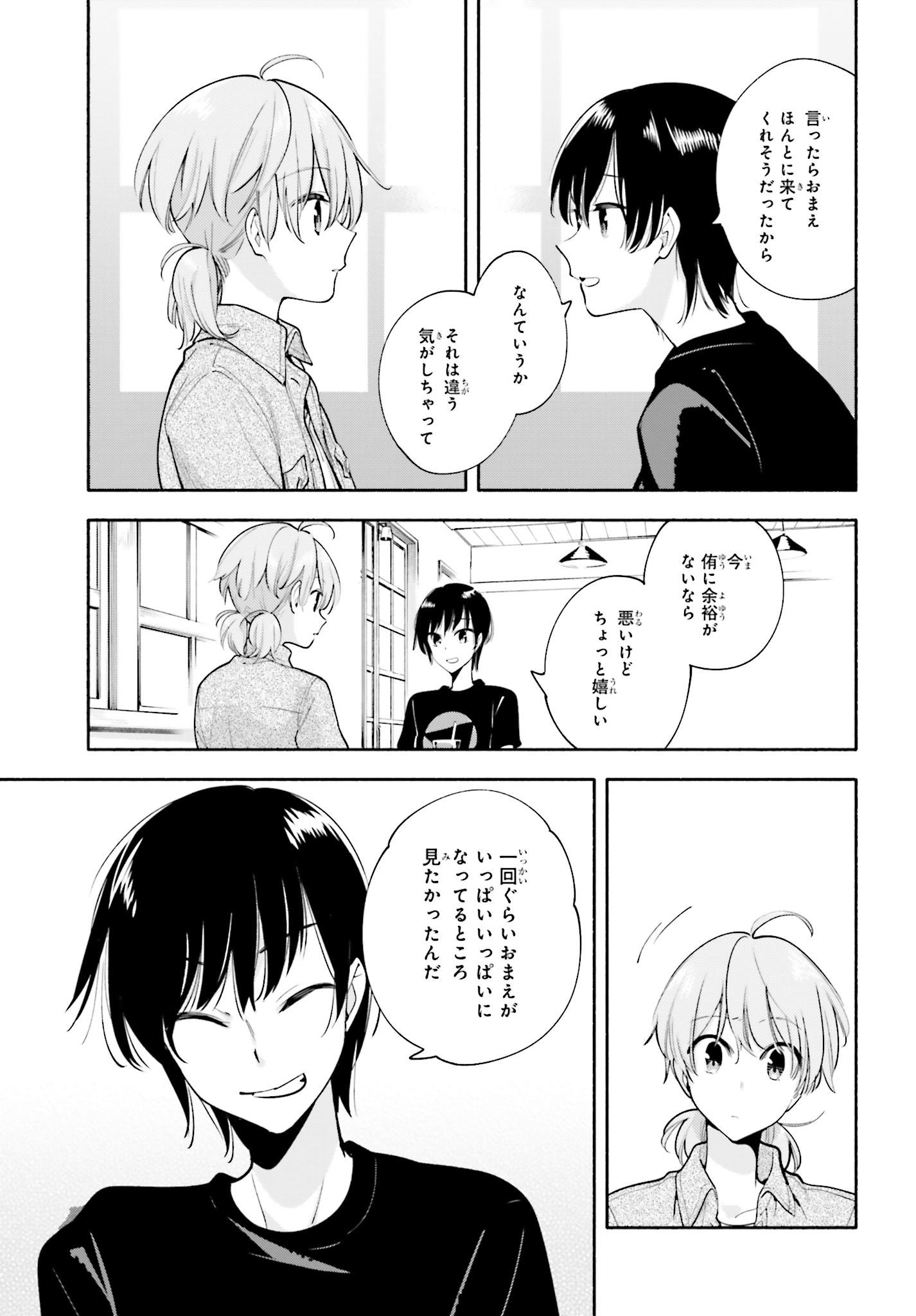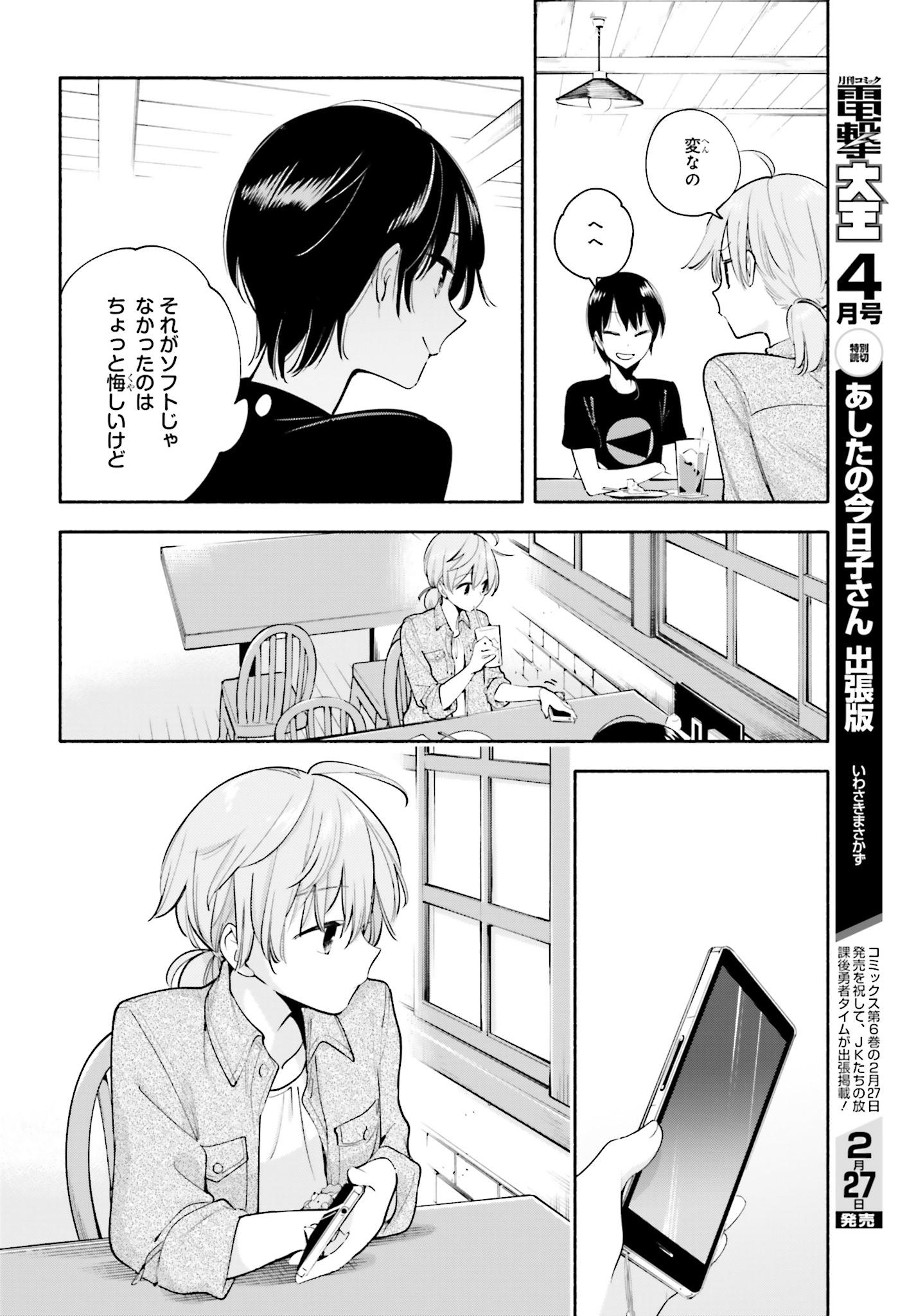I'm translating this manga, but I'm having a hard time because I don't know what's the best way to translate these words
Context: see pics... sorry that there are 7 pics, but I felt that explaining everything going on in there would be too hard and confusing. いっぱいいっぱい appears on page 3 and 6. Basically, I'm not sure if it's meant to have a positive or negative meaning in this context. I know that it's always used to talk about something negative. And 余裕, I understood it as having the mind at ease so I translated as laid-back, but I don't know if it's correct.
NOTE: before reading, I want to state that this is a romance story and Yuu has feelings for her senpai, but she's in denial/tsundere for many reasons.
In this conversation, Natsuki (short black hair) and Yuu are talking about senpai and Yuu's attitude regarding said senpai. Yuu is complaining about her senpai, and Natsuki laughs because it's the first time Yuu complains about something and says Yuu is いっぱいいっぱい. Then Natsuki talks about how Yuu used to be/have 余裕(laid-back?) all the time, and implies that the fact that Yuu isn't laid-back anymore now is because Yuu has found something (or someone in this case) that she actually cares about (that's why Natsuki mentions how Yuu never cried or showed emotion when they won or lost a softball match, unlike her teammates). Then Natsuki says that she just wanted to see Yuu being いっぱいいっぱい at least once. And at the end Natsuki thinks it's a bit frustrating that Yuu wasn't いっぱいいっぱい about softball.
That's why I'm confused, the word means something negative and since Yuu is complaining and judging by her confused reaction it should mean something negative, but Natsuki talks about this word as it is something positive. I don't know if I should translate it as "fed up" (negative) or something like "fulfilled" (positive). I can't get what Natsuki means by using いっぱいいっぱい. I find the use of 余裕 a bit confusing as well, but I guess both are related in this case. Thanks in advance.

